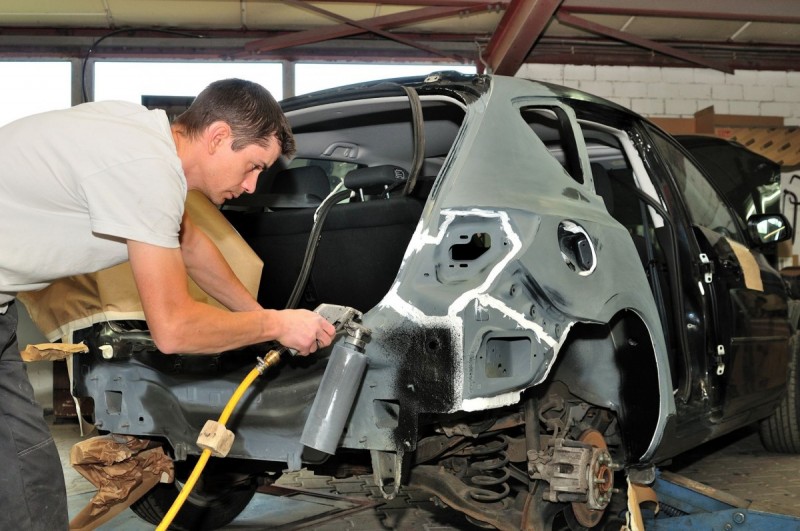Your car was in an accident, and you want it back. We understand. The thing is, some repairs can be quick in-n’-out repairs that take just a couple of days, while others aren’t so lucky. What if your car was severely damaged? How long will that take?
When you get an estimate for the cost of repairs, you will also be given an estimate of the time required to fix your car. But with many collision repair jobs, estimating auto body repair isn't an exact science. Properly estimating a repair on heavy collisions requires a full tear down of the damaged area, however, body shops do not typically perform this service (unless you are dropping the car off for repairs).
Without a complete tear down, it's hard to know with 100% certainty if everything will go exactly as planned. Oftentimes, hidden damages can be uncovered during the repair process, which require additional parts or labor. And then, there are other potential delays that could occur in any auto body repair. For example, it's possible that a new part could arrive damaged, or it doesn't make it on the truck for the scheduled delivery. If a part is needed before other repairs can continue, then the car might be sitting for a few days with no work being done to it, while other work that can be completed, is. Obviously, body shops attempt to factor in these issues when estimating, but it works in both directions.
Sometimes you will hear horror stories from friends who do not fully understand the auto body repair process. You might even hear things from your insurance company such as, “If you use that shop, we can’t get someone out for several days but if you use our preferred shop we have some there to start on it right away.”
In most cases, it usually takes no longer than three days for most insurance companies to get someone out to inspect the damaged vehicle. Insurance companies have preferred auto body shops called DRP’s with whom they have a contract to perform repairs. Them claiming that it would take several days for someone to look at a car can sometimes be an attempt to get these customers into the preferred shop. If it takes longer, it is sometimes caused by delays from the insurance company. However, isn’t it worth the wait to get a complete, quality repair that keeps your vehicle safe? It is important to choose a quality body shop that will give you the most thorough estimate as possible.
What Rights Do You Have If the Auto Body Shop Is Taking an Unreasonable Amount of Time to Repair Your Vehicle?
The answer depends on the circumstances for repair. If requested repairs are taking longer than originally quoted, and no viable reason given for delays, then you have the right to pick up your vehicle – just be prepared to pay the legal costs acquired while the car has been in the shop. I would suggest giving the shop a deadline, in writing and legally served (via first-class registered mail) outlining the complete situation with consequences for failing to follow through with the repair. If the deadline has come and gone, then you can sue them in court for the value of your vehicle at the time the repairs were started, plus the time for work missed, fees, rental, etc.
If you contact the police, they will tell you that it is a civil matter and to handle it in court. You can also post about your situation online, on review sites, yellow page sites, the state attorney general (you should also make a formal complaint with that office), social sites, etc. Tell as many people that you can about their business practices and try to keep them from running into the same situation.
Just remember, typical repair times are damage specific. Obviously, the more work the car needs, the longer it will take. Also, if the car is a special model or a rare model, parts delivery times could be excessive. There certainly are horror stories out there of cars taking months to complete the repairs, but a safe bet for a lengthy repair would be no more than one month. There is no legal time limit to how fast an auto body shop can take to repair your car, and you wouldn’t want a rushed job in any case.
